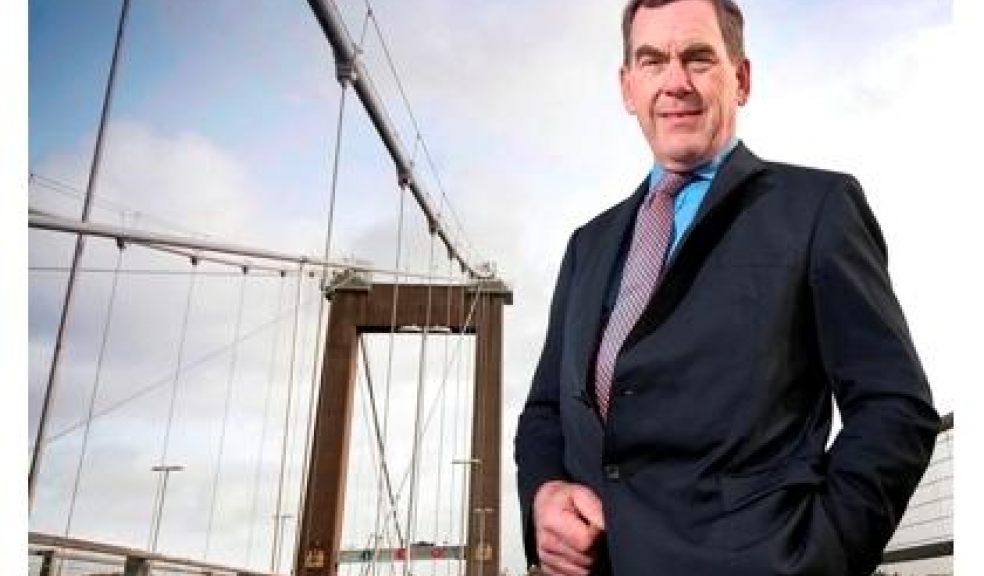
Tony Hogg: The growing influence of police and crime commissioners
In recent weeks both Labour and the Liberal Democrats have made calls for the abolition of Police and Crime Commissioners (PCCs) and both parties seem determined to return to the type of invisible governance previously provided by police authorities.
I insist on not letting party politics play any part in my decisions, but, following my election to the role two years ago, it did not take me long to realise that politicians have never been held in lower regard than they are today.
The MPs expense scandal and other misdemeanours have created an environment where the public does not care for politicians and also seems reticent to voice concerns for democracy.
The dreadful revelations about child sexual exploitation in Rotherham, and the involvement of South Yorkshire’s PCC Shaun Wright in that, added to the calls for the abolition of PCCs. Clearly, Mr Wright has lost the public’s confidence to play any role in public service, but, in the main part, the abuse appears to have taken place in the era of police authorities, thus before the creation of PCCs.
It is also likely that elected councillors on the police authority will have been seeing reports from the local council that also, so tragically, failed these abused girls. It seems reasonable to ask why South Yorkshire Police Authority or the councillors who made up the scrutiny body failed to expose the inaction of South Yorkshire Police in dealing with such a serious matter.
Shaun Wright should have resigned upon the publication of the report even though his failings in this matter were not as a PCC but as the Rotherham Council cabinet member for children’s services. He failed as a councillor which made his position become untenable.
It is hard to imagine that a PCC who had been so closely involved with this widespread failure of a public sector organisation could ensure that South Yorkshire Police was held to account for their mistakes, and, more importantly, to put them right.
I am sympathetic to calls that elected politicians should be subject to recall (voting to remove an elected official from office before his/ her term concludes). The Home Secretary has already made such a commitment for the future but I wonder whether the powers of recall should be confined to PCCs; why not other politicians from MPs to local councillors?
Having worked in all three sectors I have been struck by the scale of the job to which I was elected in November 2012. It is a big role with many powers and responsibilities and a few commissioners, through their actions, have made life difficult for the rest. Many of the first batch were quite new to big politics and certainly have had to adapt to being under the spotlight and facing a strong and often unfriendly media.
Trying to make sense of, and join up, the complicated partnership landscape across Devon and Cornwall is a daunting task. I spend much of my time with councils, government departments, voluntary sector groups and other bodies linking community safety with health and social care.
The advantage of this office is that it means one elected person does not need to refer to cumbersome bodies of councillors or distant management based in London
Keeping the economy, localism, prevention and victims in mind I consult with advisors within my office, other trusted advisors and often with the chief constable before making any decision. A single elected commissioner has a clarity of policy and decision making that was absent within police authorities.
Some critics argue that the police don’t need governance, that the Chief Constable should just be allowed to “get on with it”. For many aspects of policing this is true and is what happens. I am bound by law to protect the Chief Constable’s independence on fast time operational matters and even on more deliberate operational matters.
I am lucky to have such a good Chief Constable in Shaun Sawyer but governance is important and is not new. My role is to reflect the views of the public and to ensure that policing is in line with the will of the people.
It is strange that it is readily accepted that we allow elected representatives to be responsible for the teaching of our children, the running of our libraries, even the collection of our rubbish, but have some doubts about allowing the public’s will to be represented in the policing of our villages, towns and cities.
So while governance should be a discreet responsibility that ensures that management is effective and well directed, sometimes it is required to play a more immediate role.
Policing scandals are reassuringly rare in the south west but sometimes it is essential for governance to be exercised. However, policing scandals in other parts of the country have been all too common – from Hillsborough to Plebgate to Rotherham. Even in the south west my colleague in Avon and Somerset Sue Mountstevens has had to take steps to enable the criminal investigation of her own Chief Constable.
So whilst the appeal of allowing the police to get on with everything might appear strong, on any reflection one must come to the conclusion that governance is important and effective governance is essential.
You might have read that I recently held a public meeting where only one member of the public attended. In truth, that story stemmed from some misleading reporting of what was actually a monthly force performance meeting with the Chief Constable and his team, webcast live.
The most recent public meeting that I attended had over 100 people in the room. We know that thousands have listened to the Hotseat live events on the BBC and the local newspapers tell me that articles about the police and PCC always get a strong reaction from readers.
Not everyone may approve of my initiatives. However, the difference between the police authority and me is that the public know what I do. My work is carried out in the public eye whether it is through the press and media, public meetings, or webcast meetings.
Every week I am on the radio, being quoted in the papers, or appearing on the television. I am recognised when I am out and about and people want to come up to speak me about a local issue or to tell me that they agree or disagree with one of my recent priorities. We deal with around five times the correspondence of two years ago. I don’t believe that the public wants to see a return to business being done without any consultation or discussion with the public.
I know that the cost of my office has also been a cause of some controversy. I appointed a new Chief Executive in April and under my direction he has set about reviewing our office costs. He has recently reported to me and I am confident that the plan when fully implemented will remove about £250,000 from our annual running costs. This will take us down close to the level of spend incurred by the Police Authority and we are doing far more than the previous regime. The average costs of PCC structures have reduced from that previously in place with Police Authorities. However, cost is not the only part of this equation.
Under the old police authority, which Labour and the Liberal Democrats seem so keen to reproduce, almost all its costs came from servicing the bureaucracy that a 21 member board required. I am told that the photocopier never stopped printing out loads of copies of needless reports.
The police spent all their time writing reports that were usually just nodded through by members. The idea of setting clear strategies and then being responsible for large parts of its delivery was alien to the police authority.
In my office, I now have one person who deals with this type of bureaucracy and this is not even a full time role. I have a couple of people who manage all the correspondence and queries that I receive from the public. I have policy leads who have been helping me to lobby government, set detailed strategy and continue to work with the Force on areas such alcohol harm reduction.
I have a team of four which deals with our extensive partnership arrangements that we have in place with over thirty other authorities throughout the peninsula. This team is also implementing the new Victims Care Service that we will launch next year. Others in my office promote volunteering, manage the force budgeting arrangements, analyse performance. I could go on. So whilst “how much do you cost?” is a good question it should always be coupled with “how much do you do and how well do you do it?”
For many people that opposed the creation of PCCs the fear was that commissioners would politicise policing. I have been at pains to make clear that I do not allow party politics into my role. As for PCC colleagues nationally there is little evidence that party politics have been allowed to drive policing policy.
I along with many Conservative PCCs have loudly opposed the Government’s cuts to the policing budget over the past three years. I have criticised the Government’s weak stance on minimum unit pricing for alcohol. I have been critical of the Government’s decision to shelve an increase in the cost of firearms licensing.
I am also critical of proposals coming forward from any political party that appear to be aimed at attracting headlines rather than reducing crime.
There has only ever been one master for me in my work, and that has been the people of Devon and Cornwall. When I sit down at any negotiating table, my role is to ensure that the people across the peninsula get the best possible policing that we can provide.
To conclude, there is no doubt that there have been a number of wrong steps taken by PCCs in the first two years of their existence. However, the cry for abolition seems extremely premature. Too often political parties revert to the adage of “something must be done” when, as the experience of many public sector organisations show us, they might be better to offer a little encouragement and say “let's wait and see”.
Tony Hogg













